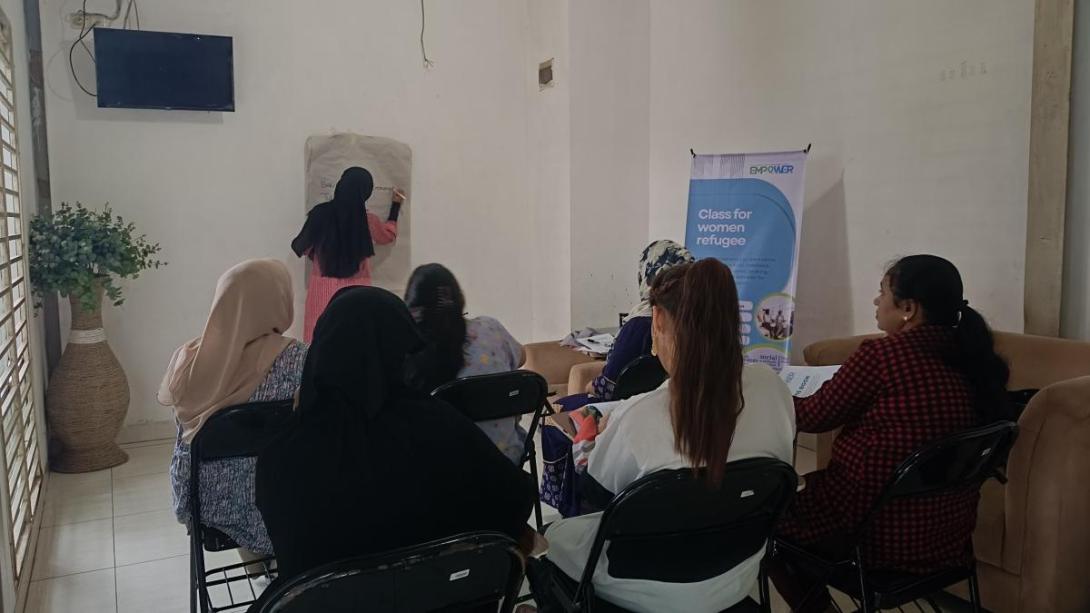
“Even simple changes—like learning new words—can make refugee women feel more independent and empowered.”
The overall aim of the project is to empower women refugee to increase adaptability and collaboration with some activities while lived in Makassar.
Main Objectives:
- To build the skill and confidence of women refugee to be able doing collaboration project with facilitator and teams
- To accommodate women refugee to be active and more empower in their society
- To collaborate the activities to introduce refugee in the community.
Laylah’s project was designed to empower refugee women in Makassar, particularly those living in DWIN accommodation, by using a co-design approach to build adaptability and integration skills. The project acknowledged the barriers refugee women face in a host country—especially around language, financial literacy, and community participation—and aimed to address them through interactive, inclusive learning spaces. The project also promoted collaboration between refugees and local facilitators, encouraging refugees to take active roles in their own development.

The initiative implemented three main classes: Bahasa Indonesia (to help with everyday communication), basic financial literacy (to support household management and economic independence), and cooking (to promote both skills development and social bonding). A total of 8 refugee women regularly joined the classes, while 3 children participated in activities, and 3 husbands received information to support their wives’ involvement. Laylah and her team also trained local facilitators to effectively implement co-design activities, ensuring that the program could be tailored to the real needs of the women involved.
The project has already shown early impact: participants have learned new Indonesian vocabulary, gained confidence in navigating daily tasks like shopping, and begun developing a sense of independence and connection with the broader community. The initiative also built relationships with IOM (International Organization for Migration) and local accommodation managers to ensure smooth access and sustainability. Laylah notes that the process required patience, flexibility, and firmness in encouraging participant responsibility, especially in an unpredictable and multicultural setting.

